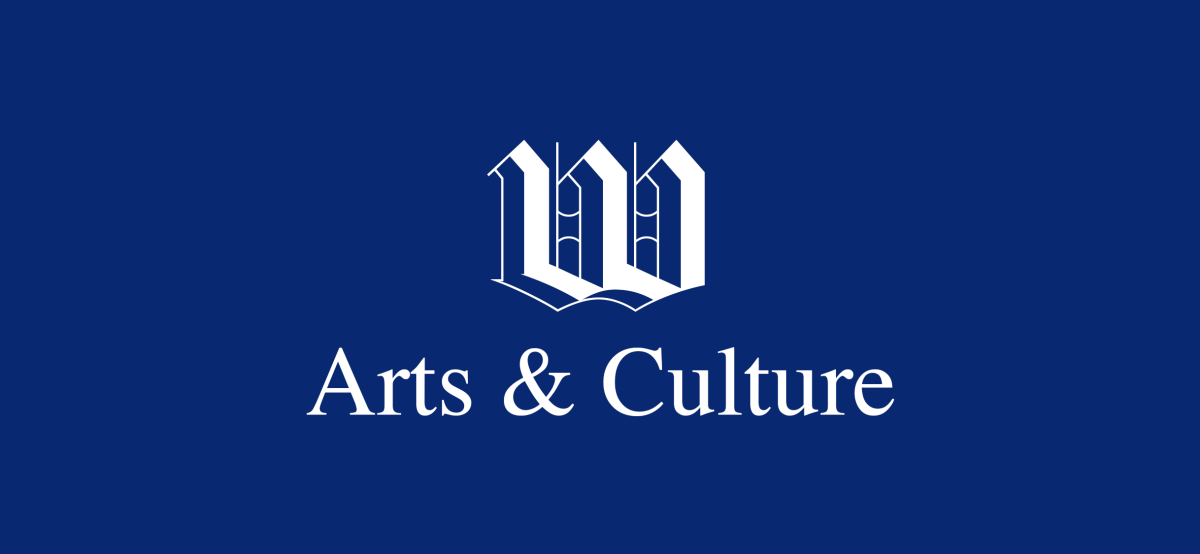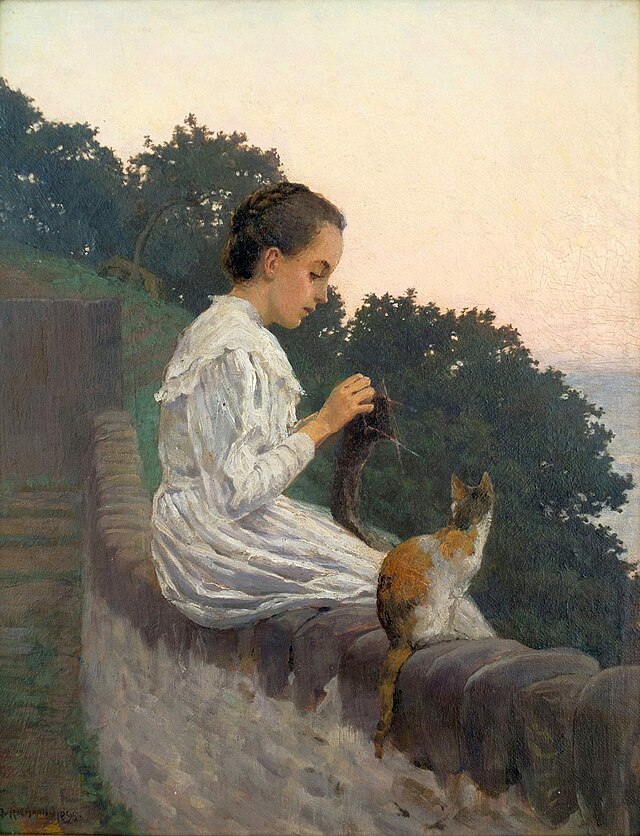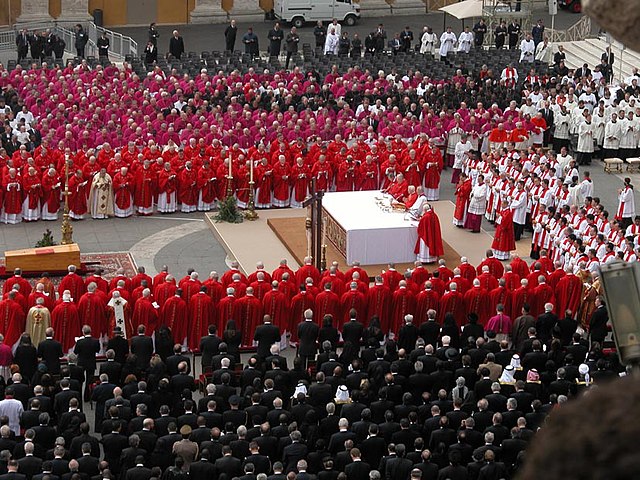On Friday, Feb. 23, “The Guide” was shown in Collins Cinema as the first half of a two-part film series that marked the second year of Russia’s full-scale invasion of Ukraine. The second film, “20 Days in Mariupol,” was shown the following Thursday in Jewett Auditorium. The on-campus screenings were orchestrated by Juliana Mytko ’25 and Sofia Dewey ’27 with support from the “Stand with Ukraine Through Film” project, Razom for Ukraine and the Wellesley Russian department.
The screening of “The Guide” (2011) was organized by Mytko and the Stand With Ukraine Through Film Project. The historical drama follows Peter Shamrock (Anton Greene), a ten-year old American living in Kharkiv, as he navigates 1930s Soviet Ukraine, the beginning of the Holodomor, and Soviet oppression of Ukrainian national identity. It specifically focuses on the existence of the Kobzars – traditional Ukrainian folk musicians – and the USSR’s attempts to destroy them.
Since the full-scale invasion, the Stand With Ukraine Through Film project has aimed to screen this film at colleges, universities and movie theaters across the US and internationally, hoping to educate Americans on the historic oppression of Ukrainians. The project director, Marshall Strauss, and the actor who played Peter, Anton Greene, came to the screening in Collins Cinema. Before the film began, Strauss spoke to the audience about what the Stand With Ukraine Through Film project is, and Greene shared his experience of acting in a Ukrainian movie.
Mytko then shared a few sentences about the importance of learning about and understanding the gravity of the Holodomor, especially as the third year of war in Ukraine begins. “The Holodomor is an event that is being called upon a lot in Ukrainian nationalist narratives now,” Mytko says in an interview. “Discussions of it as a genocide is an indication, really a huge indication, of what Russian aggression, or in that time Soviet aggression, and violence against Ukrainians looked like in terms of attacking Ukrainian identity. [This] is something that has been happening for decades and centuries really.”
“I think a lot of Ukrainians feel the importance of promoting their culture because it’s been suppressed for so long by Russian imperialism, assimilation processes, violence and erasure of Ukrainian identity,” Mytko continues, calling attention to the resilience of Ukrainian culture amidst historical atrocities like the Holodomor. “Ukrainian culture, which includes its history, its language, its art, its poetry, its literature, all these components are really the basis of Ukrainian identity.”
Dewey organized the Feb. 29 screening of “20 Days in Mariupol” (2023) with the support of Razom For Ukraine’s “Ukraine on Campus” initiative. “Ukraine on Campus” goal is to help connect Ukrainian organizations at various institutions and support campus events, with one of their biggest projects being their national screenings of “20 Days in Mariupol.”
“20 Days in Mariupol” is a documentary that follows the 20 days the director, Ukrainian journalist Mstyslav Chernov, and his team spent as the last remaining international reporters in the besieged city of Mariupol. Since its release, it won “Best Documentary” at the most recent BAFTA film awards, and it is nominated for “Best Documentary Feature” at the 96th Academy Awards.
“I think it’s an interesting piece of media to have won those awards because it is not an ordinary documentary,” Dewey said. “The whole film is just a documentation of the director’s lived survival; he was filming what he was seeing and what he was living through.”
“It’s a scary documentary and it’s graphic and gory,” Dewey continues. “I wouldn’t be surprised if the people that show up leave a quarter or halfway through because of the intensity of the content.”
As Dewey says, the movie is incredibly graphic, showing footage of parents grieving children caught in shellings, mass graves, the aftermath of a bombing of a maternity hospital, and the gruesome civilian deaths that occurred daily. “My brain will desperately want to forget all of this,” Chernov says during his narration of the film, “but the camera will not let it happen.”
After the movie ended, everyone in Jewett auditorium, which included a handful of students, professors and members of the Wellesley community, sat in complete silence as the credits rolled over a black screen and the sound of a single bass drum reverberated through the speakers. Even after the credits ended and the lights turned on, much of the audience remained still in their seats, undoubtedly horrified by what they had just witnessed.
“[The movie] shows you what kind of violence is being enacted by humans against other humans. It makes it more tangible,” Mytko says, talking about the importance of seeing such a graphic film. “You can read things but actually seeing videos indicates the scale of the Russian war against Ukraine. It shows you just how bad it is.”
“It’s very hard to watch, but it’s something that is harder to live through,” Dewey echoes. “I think that, in the same way, when marginalized groups are denied the resources to tell their own stories and communicate with the outside world, in whatever sense that may be, it’s perpetuating that myth that they don’t exist.” Chernov emphasizes this point in one of the most memorable lines from the documentary: “If the world saw everything that happened in Mariupol, it would give at least some meaning to this horror.”
In addition to educating audiences on the magnitude of Russian aggression against Ukraine, these films amplify the importance of learning about and supporting Ukrainian culture. “The support that we need is not just support from Ukrainians, its support from the whole world,” Mytko says. “I think non-Ukrainians learning about the culture, history, language and current events can help open up the dialogue about decolonizing imperialist narratives, which is a huge topic across the globe and not just in Ukraine.”
One way Mytko has opened the dialogue about Ukraine on campus is by starting the Wellesley Ukrainian Culture Association (WUCA). “[WUCA is] a place of education and just a safe space for people of Ukrainian ethnicity or origin as well as anyone who is interested in supporting Ukraine to learn more about Ukraine. I think it’s really important because we don’t have anything like that on campus.”
The film series itself has been a catalyst for discussion around the full-scale invasion. “I’m hoping that [the series] shows those who do have ties to the cause and who have felt that there hasn’t been enough resources for support, remembrance, or community that it is coming together,” Dewey says. “It’s the beginning.”
That being said, both Mytko and Dewey acknowledge the need for increased action and discussion about Ukraine at Wellesley.
“I would love to see more [events] especially given the fact that across the US and in the government, there is a lot of Ukraine fatigue happening. It has been two years of war and Ukraine is not doing as well as we might want them to. But, we also have to think about why because it has to do with the aid decreasing significantly. Ukraine cannot defend itself without allies. As a third year of war begins and as Russian aggression against Ukraine continues, I think it’s important to remember just the importance of defending Ukraine and defending democracy because it will have effects on the entire international world order.”







